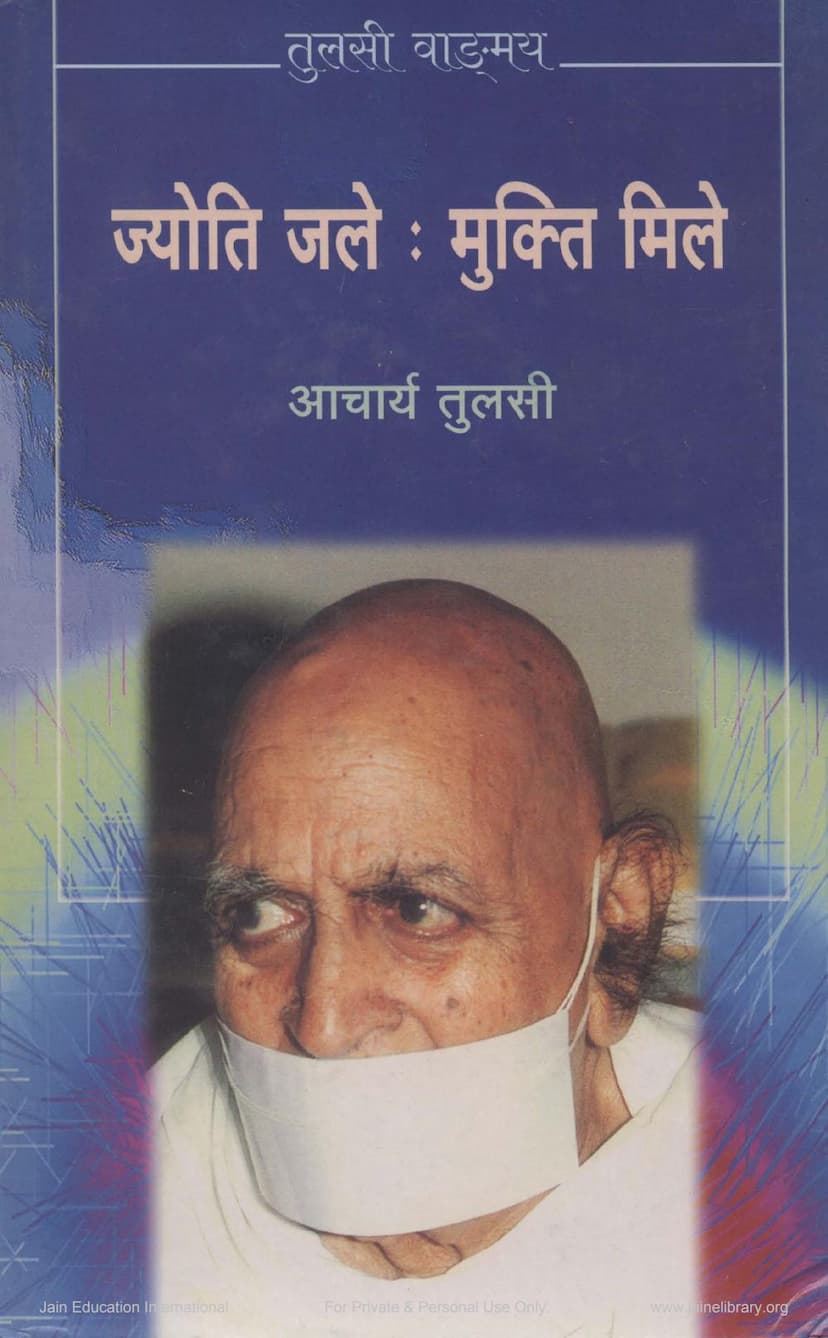Jyoti Jale Mukti Mile
Added to library: September 2, 2025

Summary
This is a summary of the Jain text "Jyoti Jale Mukti Mile" by Acharya Tulsi, published by Jain Vishva Bharati. The book is a collection of discourses given by Acharya Tulsi, compiled by Muni Dharmaruchi.
Key Themes and Concepts:
- Acharya Tulsi's Legacy: The book highlights Acharya Tulsi as a significant figure of the 20th century, known for his multifaceted contributions. He initiated the Anuvrat movement to re-establish moral and human values, conducted extensive awareness campaigns through padayatras (walking pilgrimages), and established Jain Vishva Bharati University. His literary output enriched Indian literature across various genres.
- Anuvrat Movement: The Anuvrat movement is presented as a pivotal initiative for the revival and development of moral and character-building values in society. It is described as a "natural therapy for moral diseases" and a means to instill self-discipline and ethical conduct. The movement emphasizes the importance of individual reform for societal betterment.
- The Importance of Conduct and Character: A recurring theme is the centrality of good conduct (Achar) and character (Charitra) as the true wealth of life. The text stresses that material wealth is secondary to moral integrity. Acharya Tulsi criticizes the modern obsession with accumulating wealth at the expense of ethical values, leading to corruption and societal decline.
- The Essence of Religion: Religion is defined not merely by rituals or external practices but by the internalization of its core principles like truth, non-violence, self-control, and compassion. The importance of living a life of genuine spiritual discipline and moral purity is emphasized.
- Self-Discipline (Sanyam): Acharya Tulsi repeatedly highlights Sanyam (self-control, discipline) as the essence of life and the path to inner peace and true happiness. He advocates for Sanyam in thoughts, speech, and actions, seeing it as crucial for personal development and societal harmony.
- The Role of Students and Educators: The discourses address students, emphasizing the purpose of education beyond mere acquisition of degrees or jobs, focusing on character development. Educators are urged to lead by example and foster moral values in their students.
- Broader Social and Ethical Concerns: The book touches upon various societal issues, including the need for ethical conduct in professions (like business and public service), the importance of family values, the role of women in society, inter-community harmony, and the destructive consequences of unchecked desires and materialism.
- Holistic Approach to Life: Acharya Tulsi promotes a balanced approach to life, integrating spiritual and ethical dimensions with practical living. He advocates for a shift from materialism towards spirituality and emphasizes the cultivation of virtues like forgiveness, tolerance, and universal friendship.
- The Power of Inner Transformation: The core message revolves around the idea that true progress and happiness stem from inner transformation and self-improvement rather than external achievements or material possessions.
Structure and Content:
The book is structured as a collection of individual discourses, each focusing on a specific theme. These themes range from ethical principles, societal issues, the significance of Jain philosophy, and the practical application of religious values in daily life. The language is accessible, aiming to convey profound spiritual and ethical insights in a relatable manner.
Overall Message:
"Jyoti Jale Mukti Mile" serves as a guide for living a purposeful and virtuous life. It encourages readers to cultivate strong character, uphold moral values, and strive for self-realization through discipline and ethical conduct, ultimately leading to liberation (Mukti). The book is a testament to Acharya Tulsi's profound wisdom and his enduring efforts to guide humanity towards a brighter future.